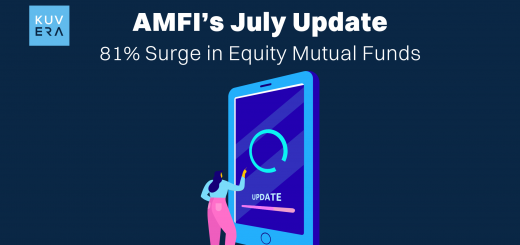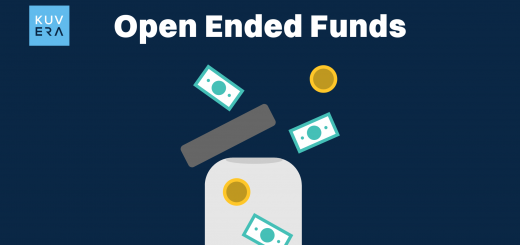A value fund’s investment strategy focuses on stocks with strong fundamentals that are undervalued in quality. For a variety of reasons, reputable fund managers search for shares that are trading at a discount to their true worth.
The idea behind a value investing approach is that as soon as the market recognises the true worth of these businesses, the share price will rise, and the value fund investor would profit from this rise. Value stocks are frequently offered by long-standing companies that provide dividends to investors.
Value funds and value investing are frequently associated with tactics devised by Warren Buffett and Benjamin Graham, two well-known value investors. Value managers select worth fund stocks based on the basic qualities of a stock’s intrinsic value.
Value Funds- Definition
Value funds are commonly used as long term mutual funds that can increase slowly over time. Thus, investment in a value fund is frequently associated with research and patience.
The idea behind value investing is that the market has certain inherent inefficiencies that allow specific enterprises to sell at prices below their real worth for a variety of reasons. In these markets, value fund managers can spot inefficiencies.
In theory, as the market corrects these inefficiencies, the value investor will benefit from a share price increase. Quality stocks are frequently associated with dividend payments because they are typically well-established companies with dedicated dividend distribution programs.
By investing in inexpensive equities, value funds provide a dependable investment opportunity. On the surface, undervalued equities might not appear to be as interesting as growth stocks. Value stocks, on the other hand, can have great growth potential. The fund managers anticipate significant gains from these equities when the market recognises their long-term investment in these stocks.
How Do Value Funds Work?
Every mutual fund is managed by professional fund managers who decide on the fund’s allocation and investing strategy. In this case, value fund managers utilise fundamental research to evaluate a company’s financial soundness and health in order to determine whether it is actually cheap. This study considers a variety of factors and indicators, including the Price to Book (P/B) ratio, EPS, and Price to Earnings (P/E) ratio, among others.
In further depth, EPS, or Earnings Per Share, is a method of determining how lucrative a firm is based on its stock EPS. The price to earnings ratio compares a company’s share price to its profits per share, whereas the price to book ratio compares a company’s market value to its book value. Fund managers can also conduct intra- and inter-industry comparisons to choose relevant investments to include in the fund’s portfolio. They specifically look at dividend yields and return on equity of different corporations. Though there is no set method for selecting value companies for inclusion in a fund, they are often distinguished by high dividend yields, low price to book value ratios and low price to earnings ratios.
Value funds might invest in a small number of firms or a large number of companies. Because certain value funds allocate based on market capitalization, you may have funds that overlap across market capitalizations.
Top 10 Value Funds Basis 5 Year Returns (As of 1st November 2022)
| Fund Name | AUM (Cr.) | 5 Year CAGR (Direct Plan) |
| ICICI Prudential Value Discovery Fund | 26,499.31 | 14.58 |
| UTI Value Opportunities Fund | 6,980.83 | 13.46 |
| Nippon India Value Fund | 4,819.27 | 12.59 |
| IDFC Sterling Value Fund | 5,074.37 | 12.43 |
| Templeton India Value Fund | 800.43 | 11.7 |
| L&T India Value Fund | 7,920.18 | 10.95 |
| HDFC Capital Builder Value Fund | 5,548.33 | 10.72 |
| JM Value Fund | 160.97 | 10.29 |
| Tata Equity PE Fund | 5,313.88 | 9.94 |
| Quantum Long Term Equity Value Fund | 877.15 | 8.75 |
Advantages Of Value Funds
- Diversification:
Value funds give investors access to a diverse portfolio since they invest in companies with a range of market capitalizations & sectors.
- Vulnerability:
Value fund managers’ investment techniques involve buying inexpensive equities because they are less prone to market volatility.
- Coverage:
Stocks included in value funds include all economic sectors and businesses that are frequently overlooked, which increases market trust in the underperforming stocks.
- Consistent Growth:
These funds can frequently experience consistent growth despite market volatility. Fund managers can buy equities at a discount during the gloomy period and sell them later at a better price when the market begins to recover, which can prove to be a wise investing strategy.
- Protection:
Value funds may, to some extent, stabilise an investor’s portfolio. They can serve as a buffer for the portfolio in the event of a market crash and a bearish period because they are made up of inexpensive equities.
Factors Before Putting Your Money In A Value Mutual Fund:
Before investing, always analyze the previous performance of the fund. In addition, the following aspects should be considered before investing in Value Mutual Funds in India:
- Previous Performance:
The majority of investors consider the fund’s performance during the previous five years. This is particularly important when investing in a value fund. Examining how the fund manager has achieved the fund’s investment objective while adhering to the value investing technique will help determine if the scheme above is suitable for your portfolio. Consequently, you should investigate the previous performance of the fund and examine the selection of stocks in its portfolio. Analyze and make a choice based on the analysis.
- Diversified Value Fund
As an equity fund, the fund management has the option of investing in large-cap or small/mid-cap value equities. Unless you are seeking exposure to companies inside a certain market capitalization group, opt for a value fund that is diversified across many market capitalizations and industries. Putting all your eggs in one basket is never a smart investing plan.
- Fund Managers
The fund managers are one of the most crucial parts of any fund since they will be handling your money and making decisions on your behalf. You should be relatively comfortable with the managers’ talents, aptitude, and expertise in determining the true worth of firms, and you should be at rest with the decisions they make with your investments.
Value Investing Is For Investors With A Long Term Horizon
When investing in equities or securities connected to equities, many financial experts recommend a minimum investment horizon of 3 to 5 years. This is more important in value investing, as fund managers invest in stocks that are undervalued owing to market circumstances. It may take some time for the circumstances to subside before the markets resume their upward trend. Therefore, invest in a Value Fund if you have a minimum 5-year investing horizon.
Who Should Invest In Value Funds?
Value Mutual funds may be suitable for you if you have the following investment philosophy:
- Long-term Investment Horizon:
Consider investing in a value fund if you can remain indifferent to short-term market volatility and have a long-term investment horizon.
- Time Constraints For Value Investing:
You can be a value investor, but you might not have the time to thoroughly study stocks or examine the fundamentals of businesses to uncover hidden jewels. Furthermore, even though you have an in-depth understanding of macro trends, you might need to gain the necessary competence for stock choosing.
In such a situation, you can think about investing in value mutual funds, where the fund manager will handle all the stock selection and research while you reap the rewards of value investing.
- The Secret Is Patience:
Value mutual funds are not some get-rich-quick schemes. Financial discipline and a lot of patience are needed for long-term investing.
You must tune out the background noise, such as the news from across the world, changes in market indexes, buy and sell signals from various business channels, etc.
In addition, a five to 10-year timeframe might see a number of market correction stages. As a result, you should have the self-control to continue investing and expanding your portfolio through SIPs.
- Willingness To Take Calculated Risk
One of the key goals of value funds is to increase wealth while preserving capital. These funds research equities before investing in them, as well as their success in the past.
However, some macroeconomic conditions and major world events, such as war, might always have a negative short-term impact on the performance of the fund. Investors in value funds should thus be prepared to accept measured risks in uncertain times and avoid selling in a panic.
- Break Free From The Herd Mentality
If several investors begin to buy a stock, driving its price up, the stock will immediately become overvalued. Value investors never purchase a company merely because others are buying it out of blind market emotion.
Reasons Why Value Funds Become Appealing In 2021
Until a few years ago, the market was driven only by a few index heavyweight firms, resulting in market polarization. Various developments, such as Demonetization, GST, liquidity crises in NBFCs, economic slowdown, and so on, had a negative influence on the equities market’s growth.
Furthermore, SEBI’s mutual fund recategorization criteria did not appeal to mutual funds, particularly those with high exposure to mid-cap and small-cap equities. As a result, value as an investment style has fallen out of favour, and the performance of Value Funds has deteriorated.
However, as the market rise got more widespread in the latter part of 2020, returns on Value Funds became more appealing. After underperformance between 2018 and early 2020, several mid-cap and small-cap companies were offered at reasonable prices. Fund managers who invested in such stocks reaped enormous returns.
Furthermore, after a lengthy break, numerous PSU equities (where value funds have a major allocation) have risen in the last couple of years. Some battered businesses and industries also surprised investors with significant profit growth. Value Funds’ performance improved as a result of a combination of these variables.
Value style funds, by definition, underperform their growth-oriented rivals in bullish market conditions while outperforming in bearish market conditions.
Looking at the performance of Value Funds during the bull phase of 2020-2021, it is clear that most value funds that are heavyweight on mid-caps and small-caps, as well as those that follow a blend of Value and Growth, have done exceptionally well, while some true-to-style value funds have ended up in the bottom performing funds. As an investor, you must grasp the actual style of value funds and not be swayed by their performance.
Value as an investment style is intended to be defensive. As a result, prioritise Value funds that have the ability to perform well in bearish market situations above those that shine primarily in bullish markets.
Risk Associated With Value Funds
- The Risk Of Devaluation: In a growth-oriented market, when high-priced shares are consistently traded more than undervalued shares, value funds might depreciate. These funds may underperform due to inadequate investment in high-growth stocks.
- Value Trap: There is a chance that some of the discounted stocks in the value funds will not grow or gain at all, resulting in false alarms about growth potential. After a protracted delay, the management may be forced to sell these equities at a loss.
- The Time Factor: The sluggish development of these funds can be annoying and unpleasant. Certain equities may not appreciate in value for several years. As a result, a great deal of patience and time is necessary.
Taxation Of Value Funds
Value funds are categorised as equity-oriented mutual funds under tax legislation since they invest at least 65% of their net assets in equities and equity-related instruments. The difference between the invested amount and the redemption value is taxed as a capital gain.
If the investors have held the redeemed units for less than a year, the profits are taxed as Short-Term Capital Gains (STCG) at 15%. (plus applicable cess and surcharge). For holding periods of one year or more, profits are taxed as Long-Term Capital Gains (LTCG) at a 10% rate (plus applicable cess and surcharge).
Interested in how we think about the markets?
Read more: Zen And The Art Of Investing
Check out all our “Investor Education Originals” videos on Youtube and get smart about investing.
Start investing through a platform that brings goal planning and investing to your fingertips. Visit kuvera.in to discover Direct Plans and Fixed Deposits and start investing today.
#MutualFundSahiHai #KuveraSabseSahiHai #PersonalFinance #InvestorEducation;











